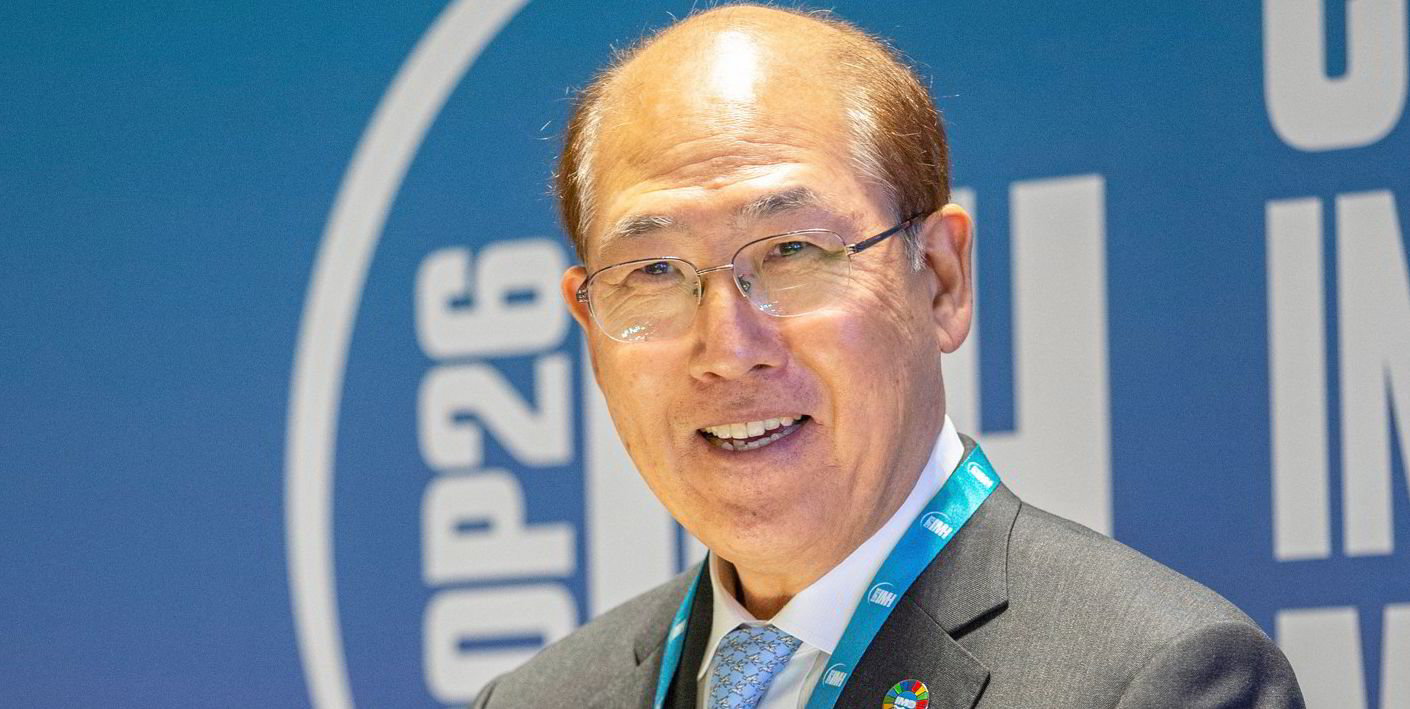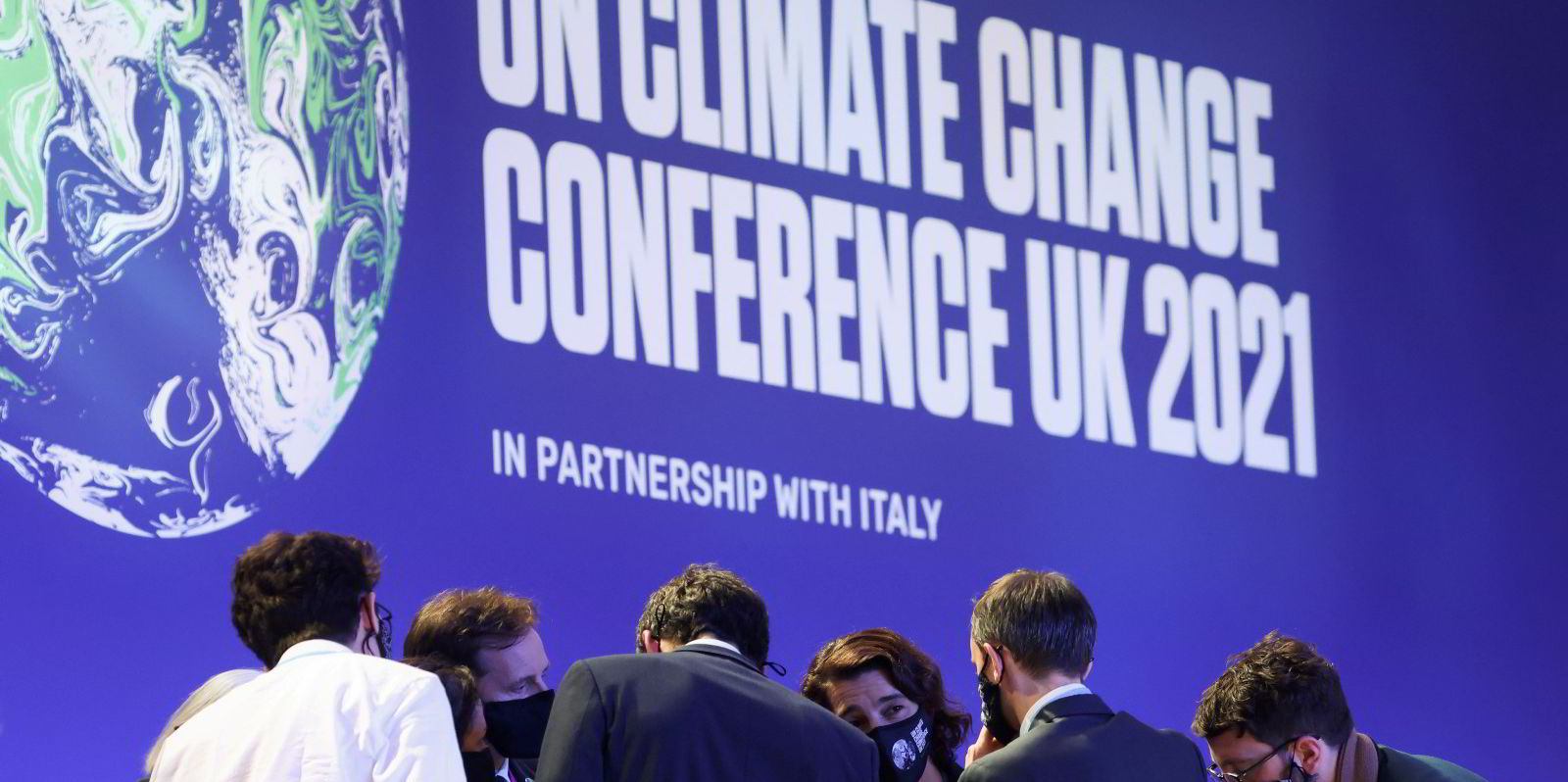Urgent negotiations to upgrade the International Maritime Organization's decarbonisation goals will begin next week with major governments backing zero emissions by 2050.
Following the COP26 meeting in Glasgow, the IMO is facing pressure to raise its decarbonisation targets to align the industry more closely with the Paris Agreement on climate change.
The IMO's current target is to halve shipping emissions in by 2050, compared with 2008, but that will come under review in 2023.
Kiribati, the Solomon Islands and Marshall Islands are calling for the IMO's Marine Environment Protection Committee to immediately make a "clear, overarching statement, in the form [of] a resolution, that the organisation is committed to greenhouse gas emissions from international maritime transport being reduced to zero by at least 2050".
The 27 members of the European Union have submitted a paper backing the Pacific island states' proposal.
A separate proposal from the US, UK, Japan, Norway and Costa Rica is also calling for the IMO to mandate net-carbon emissions by 2050.
This proposal is asking the organisation to adopt updated interim targets for 2030 and 2040.
That would in effect mean that the current planned midterm ship efficiency targets — including the upcoming Energy Efficiency Existing Ship Index and the Carbon Intensity Indicator — would also need to be significantly raised.
The Japan and US-led proposal wants to see concrete measures introduced by 2025 "in a way that reflects the urgency of the climate crisis".

The joint submission said: "Shipowners, financiers, charterers ... today [we] need to know where to direct investments. Otherwise, there is a risk of stranded assets."
The paper's sponsors are also calling for the IMO to draw up a list of medium and long-term measures by 2023 that will enable the shipping industry to meet a zero-emissions target. It also wants a full cost-benefit analysis of the measures.
Market-based measures
The International Chamber of Shipping has submitted a revised proposal for the establishment of an International Maritime Research and Development Board to manage a $5bn research and development fund collected from a levy on fossil fuel.
Together with Bimco, and seven other shipping associations, it has also come up with a comprehensive analysis, conducted by consultancy company Ricardo, on technology development projects to which the funds could be directed.
"Unless R&D of zero-carbon technologies is quickly accelerated between now and the end of the decade, the required acceleration of R&D will occur too late," the paper's sponsors said.
Norway has submitted a paper suggesting that a cap-and-trade emissions trading scheme would be a better way to incentivise the switch to low-carbon fuels.
If a levy is applied to fuel, it argues, then the charterer will inevitably end up paying.
Norway points out it is the shipowner that makes the investment in technology and needs to be incentivised. The country proposes a carbon intensity limit to be set for ships and for the shipowner to be charged for exceeding that limit.
The European Commission's member states have submitted a proposal for the IMO to draw up a list of "guiding principles", under which market-based measures can be developed.





